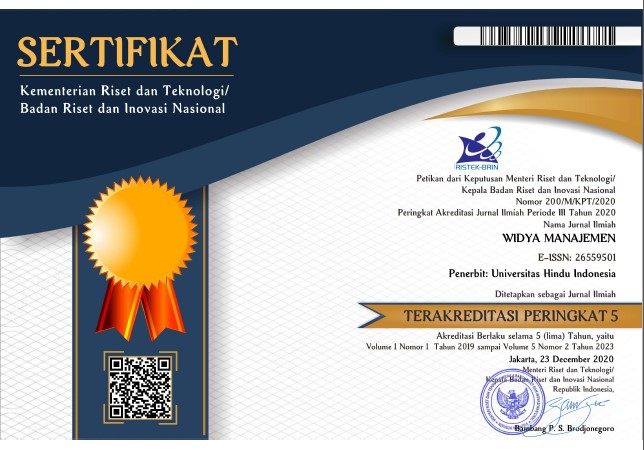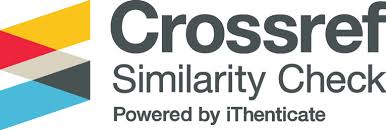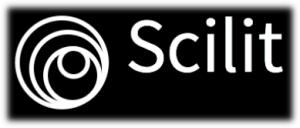Strategi Promosi Agresif Melalui Pengayaan Media Sosial di Al Qadri Haji dan Umrah Jakarta
Abstract
The optimal promotional strategy functions to introduce and encourage increased sales of products and services offered by marketers. This research aims to formulate appropriate promotional strategies to increase sales figures in Al Qadri Haji and Umrah Jakarta. A SWOT analysis is carried out by identifying internal factors of strengths and weaknesses and external factors of opportunities and threats. The results showed that the strength in internal factors is higher than the weakness and the external factor aspect of opportunity is a higher value than the existing threat. SWOT graph shows that the position of promotional activities in Al Qadri Umrah and Hajj is in quadrant I, which is a very favorable situation. The company has the opportunity and strength so that can take advantage of the existing opportunities. The promotional strategy must support aggressive growth policies by strengthening media sosial in terms of diversity and content, and celebrity endorser involvement.
References
Alma, B., & Saladin, D. (2010). Manajemen Pemasaran: Ringkasan Praktis, teori, Aplikasi dan Tanya Jawab. Bandung: CV LindaKarya.
Angraini, D., & Harwani, Y. (2020). The Effect of Product Quality, Price Perception, and Promotion of Purchasing Decisions in Sari Roti in West Jakarta. 120(Icmeb 2019), 296–301. https://doi.org/10.2991/aebmr.k.200205.051
David, F. R. (2008). Manajemen Strategis Edisi Sepuluh. Jakarta: Salemba Empat.
Familmaleki, M., Aghighi, A., & Hamidi, K. (2015). Analyzing the Influence of Sales Promotion on Customer Purchasing Behavior. International Journal of Economics & Management Sciences, 4(4), 1–6. https://doi.org/10.4172/2162-6359.1000
Farhanah, N. (2017). Problematika Waiting List Dalam Penyelenggaraan Ibadah Haji Di Indonesia. Jurnal Studi Agama Dan Masyarakat, 12(1), 57–80. https://doi.org/10.23971/jsam.v12i1.469
https://haji.kemenag.go.id. (n.d.).
https://www.datatempo.co. (2021).
Kaplan, A. M., & Haenlein, M. (2010). Users of the world, unite! The challenges and opportunities of Social Media. Business Horizons, 53(1), 59–68. https://doi.org/10.1016/j.bushor.2009.09.003
Liao, S. L., Shen, Y. C., & Chu, C. H. (2009). The effects of sales promotion strategy, product appeal and consumer traits on reminder impulse buying behaviour. International Journal of Consumer Studies, 33(3), 274–284. https://doi.org/10.1111/j.1470-6431.2009.00770.x
Liu, Q., Zhang, X., Huang, S., Zhang, L., & Zhao, Y. (2020). Exploring consumers’ buying behavior in a large online Promotion Activity: The role of Psychological Distance and Involvement. Journal of Theoretical and Applied Electronic Commerce Research, 15(1), 66–80. https://doi.org/10.4067/S0718-18762020000100106
Mangold, W. G., & Faulds, D. J. (2009). Social media: The new hybrid element of the promotion mix. Business Horizons, 52(4), 357–365. https://doi.org/10.1016/j.bushor.2009.03.002
Morimura, F., & Sakagawa, Y. (2018). Information technology use in retail chains: Impact on the standardisation of pricing and promotion strategies and performance. Journal of Retailing and Consumer Services, 45(June), 81–91. https://doi.org/10.1016/j.jretconser.2018.08.009
Mustafa, S., & Al-Abdallah, G. (2020). The evaluation of traditional communication channels and its impact on purchase decision. Management Science Letters, 10(7), 1521–1532. https://doi.org/10.5267/j.msl.2019.12.014
Nazarko, J., Ejdys, J., Halicka, K., Magruk, A., Nazarko, Å., & Skorek, A. (2017). Application of Enhanced SWOT Analysis in the Future-oriented Public Management of Technology. Procedia Engineering, 182, 482–490. https://doi.org/10.1016/j.proeng.2017.03.140
Osei-Frimpong, K., Donkor, G., & Owusu-Frimpong, N. (2019). The Impact of Celebrity Endorsement on Consumer Purchase Intention: An Emerging Market Perspective. Journal of Marketing Theory and Practice, 27(1), 103–121. https://doi.org/10.1080/10696679.2018.1534070
Pai, F. Y., Chen, C. P., Yeh, T. M., & Metghalchi, M. (2017). The effects of promotion activities on consumers’ purchase intention in chain convenience stores. International Journal of Business Excellence, 12(4), 413–432. https://doi.org/10.1504/IJBEX.2017.085005
Puangmaha, T., Taiphapoon, T., Vadhanasindhu, P., & Sinthupinyo, S. (2020). Innovative social media marketing communication application for Thai hotel SMEs. International Journal of Interactive Mobile Technologies, 14(16), 150–167. https://doi.org/10.3991/ijim.v14i16.15199
Rangkuti, F. (2013). Teknik Membedah Kasus Bisnis Analisis SWOT Cara Perhitungan Bobot, Rating, dan OCAI. Jakarta: PT. Gramedia Pustaka Utama.
Schivinski, B., Christodoulides, G., & Dabrowski, D. (2016). Measuring consumers’ engagement with brand-related social-media content: Development and validation of a scale that identifies levels of social-media engagement with brands. Journal of Advertising Research, 56(1), 64–80. https://doi.org/10.2501/JAR-2016-004
Setiadi, A. (2014). Pemanfaatan media sosial untuk efektifitas komunikasi. Jurnal Ilmiah Matrik, 16(1).
Sopian. (2016). Public Relations Writing: Konsep, Teori, Praktik. Jakarta: Gramedia Widiasarana Indonesia.
Sugiman, F. (2017). Pengembangan Bisnis Dilihat dari Faktor Internal dan Eksternal Perusahaan pada Homestay Dhanesvara di Surabaya. Jurnal Hospitality Dan Manajemen Jasa, 1(2), 362–375.
Utama, I. G. B. R., & Mahadewi, N. M. E. (2012). Metodologi Penelitian Pariwisata dan Perhotelan. Yogyakarta: CV. Andi Offset.
Wang, S.-H. (2019). The Internet Promotion Strategy on Consumer Buying Behavior. South Asian Research Journal of Business and Management, 01(03), 121–124. https://doi.org/10.36346/sarjbm.2019.v01i03.006
Wawrowski, B., & Otola, I. (2020). Social media marketing in creative industries: How to use social media marketing to promote computer games? Information (Switzerland), 11(5). https://doi.org/10.3390/info11050242
Wehalo, W., & Zahara, N. H. (2015). Analisis Anggaran Biaya Pemasaran Sebagai Alat Penilaian Kinerja Pada Pt. Penerbit Erlangga Cabang Bengkulu. EKOMBIS REVIEW: Jurnal Ilmiah Ekonomi Dan Bisnis, 3(1), 1–14. https://doi.org/10.37676/ekombis.v3i1.90
Widmer, R. J., Mandrekar, J., Ward, A., Aase, L. A., Lanier, W. L., Timimi, F. K., & Gerber, T. C. (2019). Effect of Promotion via Social Media on Access of Articles in an Academic Medical Journal: A Randomized Controlled Trial. Academic Medicine, 94(10), 1546–1553. https://doi.org/10.1097/ACM.0000000000002811
Yasa, N. N. K., Giantari, I. G. A. K., Setini, M., Sarmawa, W., Laksmit, P., Rahmayanti, D., & Dharmanegara, I. B. A. (2020). Service strategy based on Tri Kaya Parisudha, social media promotion, business values and business performance. Management Science Letters, 10(13), 2961–2972. https://doi.org/10.5267/j.msl.2020.5.029
Reproduction Policy
Every author submitting articles to Widya Manajemen must make a statement that the manuscript is free from plagiarism and is not being considered and published in other journals.
Articles that have been published are copyrighted by the Program Studi Manajemen FEBP UNHI. For educational purposes, the contents of the article may be duplicated or reproduced as long as the source of the article is mentioned. Written requests must be submitted to the editor to obtain permission to republish the contents of the article for purposes other than educational purposes.
-----------------------------------------------------------------------------------------------------
Kebijakan Reproduksi
Setiap penulis yang menyerahkan artikel ke Widya Manajemen harus membuat surat pernyataan bahwa naskahnya bebas dari plagiarisme dan tidak sedang dipertimbangkan dan dimuat dalam jurnal lain.
Artikel yang telah dipublikasi menjadi hak cipta Program Studi Manajemen FEBP UNHI. Untuk tujuan edukatif, isi dari artikel dapat digandakan atau direpublikasi selama menyebutkan sumber dari artikel tersebut. Permintaan tertulis harus diajukan kepada editor untuk memperoleh ijin merepublikasi isi dari artikel untuk tujuan lainnya selain tujuan edukatif.






.jpg)









